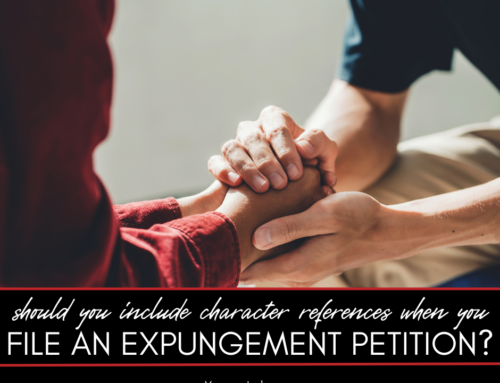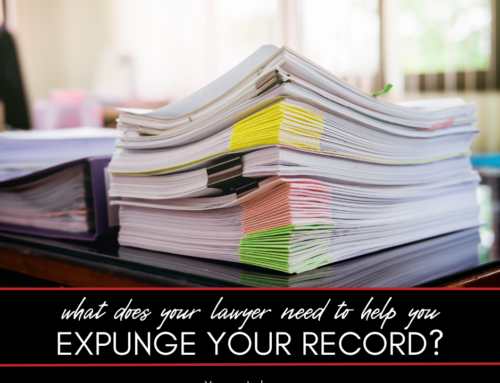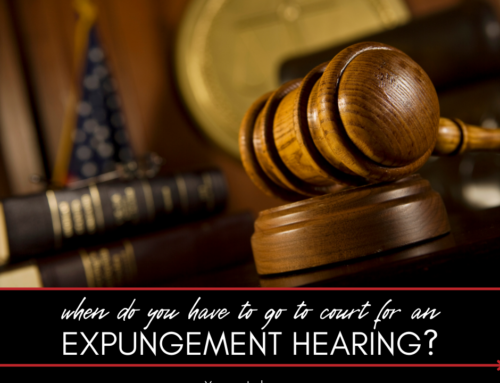
Landlords and employers typically run background checks to protect themselves, their tenants and their employees. This guide explains in detail why landlords run background checks, and what you can do if you have a criminal history you don’t want others to find out about.
Why Do Landlords Run Background Checks?
Landlords usually want to make sure that the tenants who move into their properties will be reliable in paying rent and following any rules or regulations set forth by the landlord. Additionally, landlords have a responsibility to provide safe housing for their tenants and ensure that the property is not being used for any criminal activity.
Running a background check on potential tenants helps landlords verify their identity, confirm employment status and salary level, gain an understanding of their credit history and financial stability, determine whether they have ever been evicted from another rental property, and find out about any criminal records or lawsuits related to them.
Why Do Employers Run Background Checks?
Employers want to ensure they are hiring qualified, trustworthy and dependable employees who will represent their company positively. Additionally, employers have a responsibility to provide a safe work environment for their employees.
For these reasons, employers usually run background checks on potential hires to verify identify, confirm education qualifications, check credit history, and get information about any criminal convictions or lawsuits related to the applicant. This helps them determine whether a potential hire is suitable for the job or not.
By running background checks, landlords and employers can make sure they are making informed decisions when it comes to renting out their properties and hiring employees. If you have a criminal history that you don’t want potential landlords or employers to find out about, there are a few things you may be able to do to head off problems.
What to Do if You Have a Record You Don’t Want Landlords or Employers to See: Expunging Your Criminal Record in Indiana
Expungement is the process of sealing criminal records. It prevents information about your criminal convictions from appearing on background checks and makes it easier for you to get a job, rent a house or apartment, or obtain certain professional licenses in Indiana.
You may be eligible for expungement if you have been convicted of certain misdemeanor crimes, or if you have received a deferred sentence for certain felony offenses. However, it is important to note that not all criminal convictions can be expunged in Indiana and some will remain on your record for life.
You can usually expunge:
- Some juvenile offenses
- Misdemeanors
- Class C and D felonies
- Levels 1 through 6 felonies (in some cases)
- Pretrial diversion records
- Traffic offenses
However, it’s not usually possible to expunge:
- Attempted murder or murder
- Voluntary manslaughter
- Battery that resulted in serious bodily injury
- Child molestation
- Robbery
- Arson
- Rape
- Kidnapping or criminal confinement
- Criminal deviate conduct
- Dealing in or manufacturing Schedule I, II, III or IV controlled substances
- Dealing in methamphetamine
Expungement and Background Check FAQ
Check out the following questions you may have if you’re thinking about expunging your record in Indiana before you apply for jobs or look for a new place to live. If you don’t see the answer you’re looking for here, please call our office at 317-647-5476 to schedule your free consultation with an experienced attorney. We’ll get you the answers you need.
Is There a Waiting Period Before You Can Expunge Your Record in Indiana?
Yes, there is usually a waiting period before you can apply to expunge your record in Indiana. The specific time frame depends on the type of offense and whether or not you received a deferred sentence. Generally, misdemeanor convictions require that you wait five years after the completion of your sentence and felony convictions require a waiting period of eight years. Some people must wait ten years.
How Many Times Can You Expunge Your Criminal Record in Indiana?
You can only expunge your criminal record in Indiana once, so it’s important to make sure that you choose the right offenses to expunge. There are certain crimes that may not be eligible for expungement and those that have been previously expunged may not be able to be expunged again.
Will Expungement Remove My Criminal Record From Background Checks?
An expungement may remove your criminal record from background checks. This means that potential employers and landlords will not be able to see this information when they run a background check on you. However, it is important to note that some government agencies may still have access to your expunged record.
It’s also important to note that in some cases, your record will still be visible – but it’ll be marked as “expunged.” When that happens, you need to know that it’s illegal for employers and landlords to discriminate against you.
Can I Expunge My Criminal Record If I Have an Outstanding Warrant?
You must resolve any outstanding warrants before you can apply for expungement. This means that you must turn yourself in and go through the court process before you can file for expungement. You will also be required to pay any fines or fees associated with the outstanding warrant.
If you have an outstanding warrant, contact an experienced attorney immediately to help you resolve the issue and determine if expungement is still possible.
Can I Expunge My Criminal Record If I Am Currently On Parole or Probation?
You cannot apply for expungement while you are on parole or probation. However, you may be able to apply for expungement once your sentence has been completed. Check with an experienced attorney to determine if this is an option for you.
Do You Need to Talk to an Indiana Expungement Attorney Before a Landlord or Employer Runs a Background Check On You?
It’s always a good idea to talk to an experienced attorney before you apply for jobs or look for a new place to live. A qualified lawyer will be able to review your criminal record and advise you on the best course of action. They can help you determine if expungement is the right option or if there are other alternatives that may meet your needs. They can also help you understand the expungement process and make sure that all of the paperwork is filed correctly so that you can start fresh.
Call our office at 317-647-5476 or fill out the form below for a free consultation on expungement. We’re here to answer your questions and get you the fresh start you deserve.













